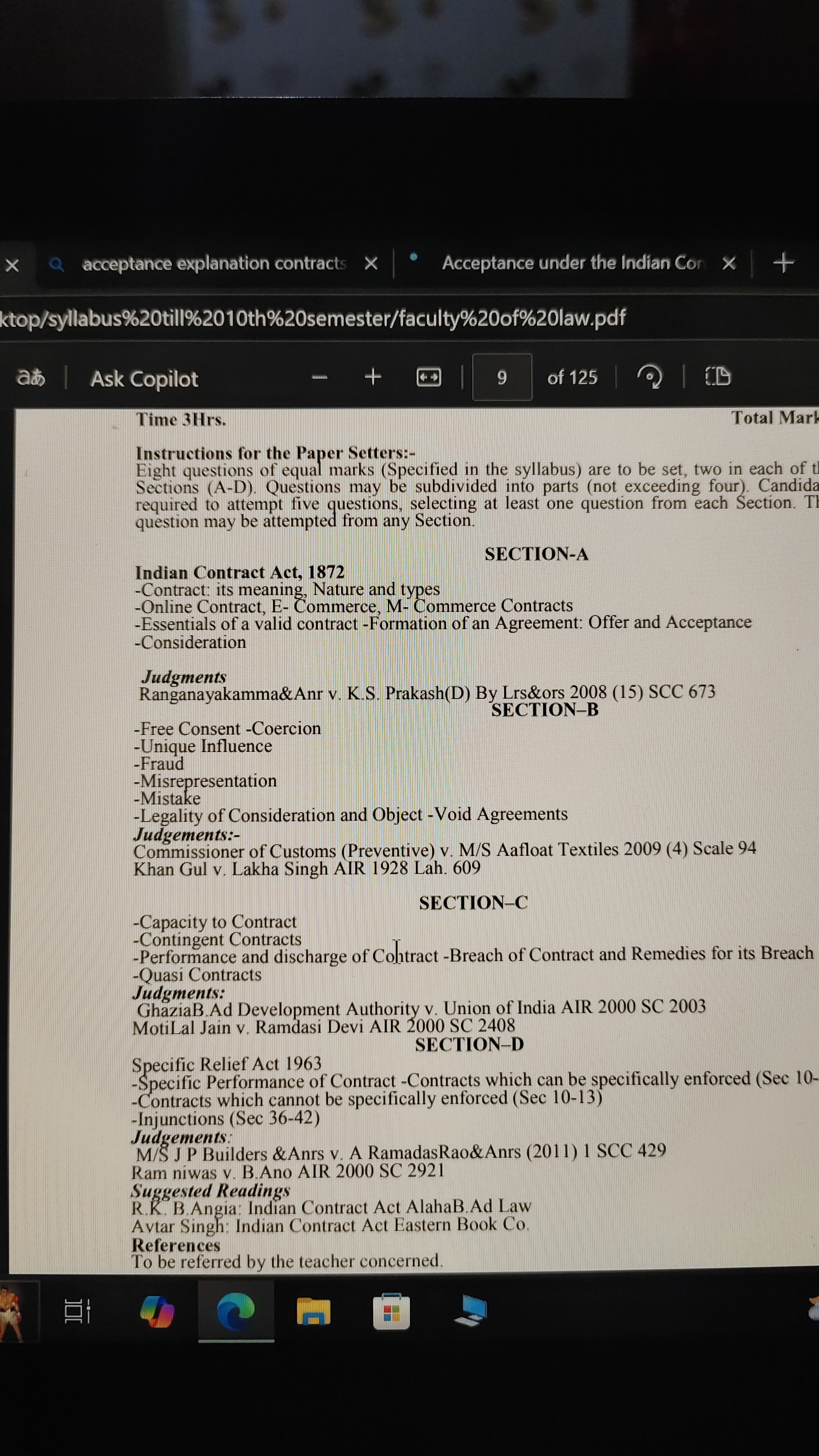What are the key components of the Indian Contract Act, 1872, and the relevant judgments associated with it?

Understand the Problem
The question pertains to topics covered under the Indian Contract Act, including definitions, types of contracts, and specific judgments related to contract law. It appears to be part of a syllabus outlining key areas for study.
Answer
Key elements: offer, acceptance, consideration, capacity, consent. Judgments: Ranganayakamma (2008), Aafloat Textiles (2009).
The Indian Contract Act, 1872 outlines essential elements for a valid contract: offer and acceptance, lawful consideration, capacity to contract, free consent, lawful object, and certainty of terms. Relevant judgments include Ranganayakamma v. K.S. Prakash (2008) related to free consent, and Commissioner of Customs v. M/S Aafloat Textiles (2009) regarding contract performance.
Answer for screen readers
The Indian Contract Act, 1872 outlines essential elements for a valid contract: offer and acceptance, lawful consideration, capacity to contract, free consent, lawful object, and certainty of terms. Relevant judgments include Ranganayakamma v. K.S. Prakash (2008) related to free consent, and Commissioner of Customs v. M/S Aafloat Textiles (2009) regarding contract performance.
More Information
The Indian Contract Act, 1872 forms the basis for contract law in India. It requires specific elements to ensure a contract is legally enforceable and addresses various scenarios such as void and voidable contracts.
Tips
Avoid overlooking elements like free consent and legal capacity, as these are crucial to determining the validity of a contract.
Sources
- Indian Contract Act, 1872 - Wikipedia - en.wikipedia.org
- Essentials of India's Contract Law - Lexagle - lexagle.com
AI-generated content may contain errors. Please verify critical information